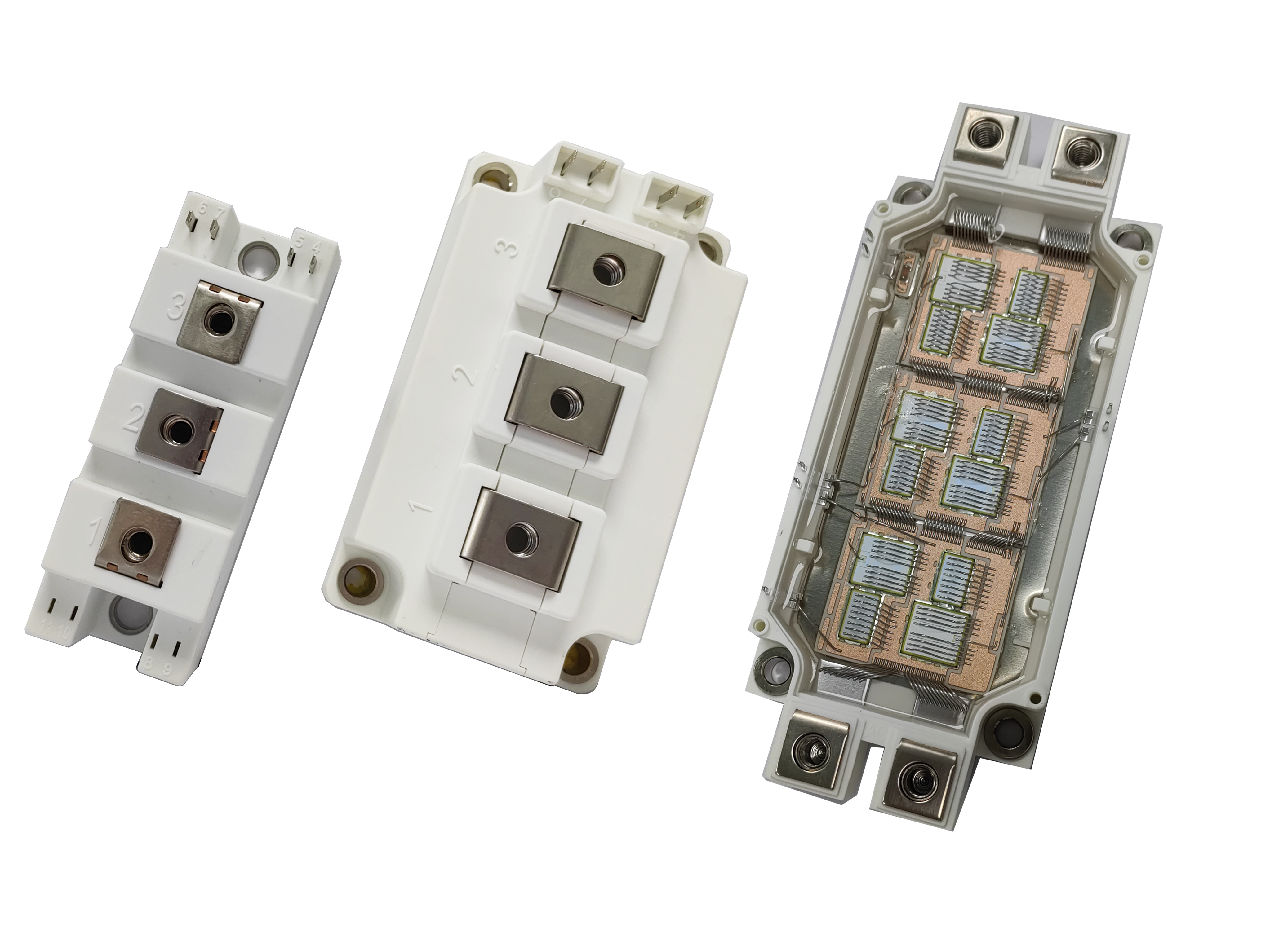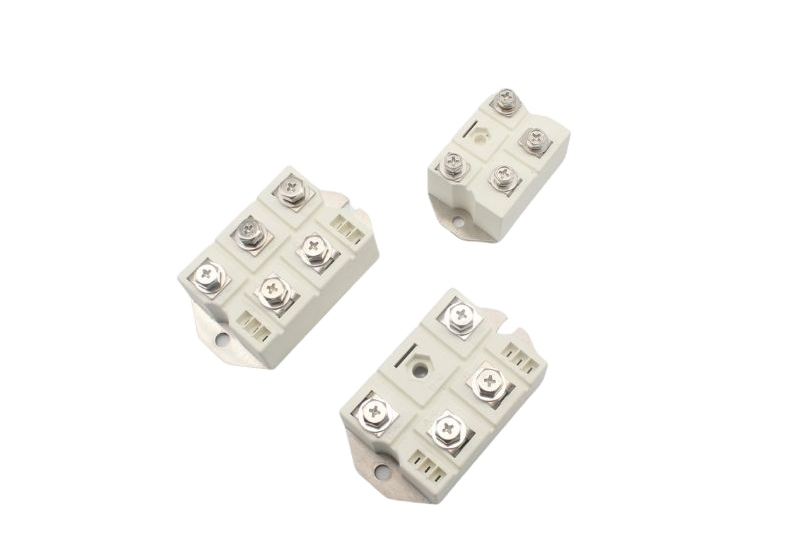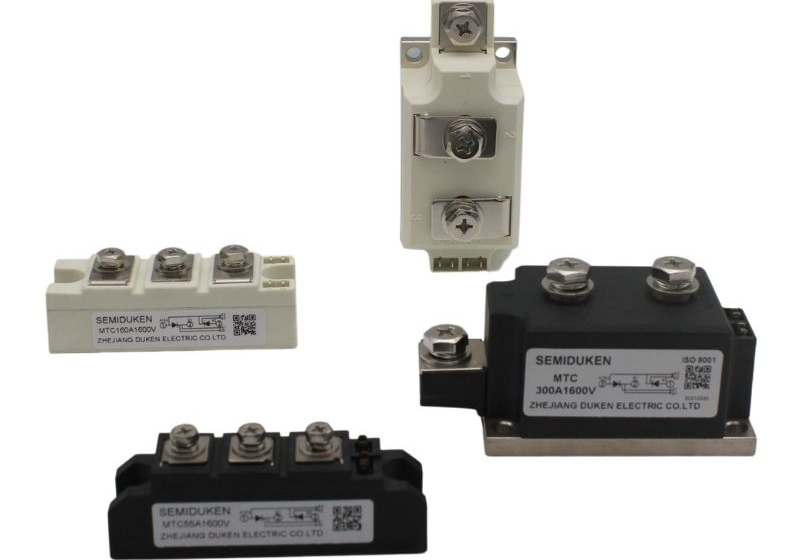Performance Analysis of 106A Thyristor Modules in UPS Systems
UPS systems require reliable, high-performance modules to ensure uninterrupted power to critical loads. The 106A thyristor module is pivotal in managing current flow, voltage transitions, and thermal stability. Understanding the performance characteristics of different packaging types is essential for engineers optimizing UPS designs.
High-Surge Screw-Mount Module Performance
The 2250A-surge 1000V-µs-dv-dt screw-mount 106A thyristor module is designed to endure transient surges and fast voltage transitions typical in UPS environments. With a surge current rating of 2250A and a dv/dt tolerance of 1000V/µs, it ensures reliable operation under high-stress conditions. The screw-mount design provides mechanical stability and efficient heat dissipation to external heatsinks, crucial for sustained UPS performance.
The 2250A-surge 1000V-µs-dv-dt screw-mount 106A thyristor module safeguards downstream equipment by mitigating potential failures during sudden load changes or power anomalies.
Compact 7-Pin Anti-Parallel Modules for Space-Constrained Systems
In modern UPS applications, panel space is often limited. The compact 7-pin anti-parallel 106A thyristor module addresses this constraint with a small form factor and anti-parallel configuration, enabling bidirectional current flow. Despite its compact design, it maintains excellent current handling and voltage performance.
This module facilitates high-density PCB layouts, helping engineers design modular, space-efficient UPS systems without sacrificing reliability or maintainability.
Thermal Management with Low Rth(j-c) Water-Cooled Modules
Heat dissipation is critical for the long-term reliability of UPS modules. The low Rth(j-c) heat-sink water-cooling 106A thyristor module reduces junction-to-case thermal resistance and incorporates integrated water-cooling channels. This ensures stable operation during high-load and continuous-duty conditions.
The low Rth(j-c) heat-sink water-cooling 106A thyristor module allows UPS systems to maintain optimal thermal performance, extending service life and improving efficiency under demanding operational scenarios.
Optimizing Module Selection
Choosing the right 106A thyristor module involves balancing surge tolerance, space efficiency, and thermal management. The 2250A-surge 1000V-µs-dv-dt screw-mount 106A thyristor module provides robustness for high-stress conditions, the compact 7-pin anti-parallel 106A thyristor module maximizes space efficiency, and the low Rth(j-c) heat-sink water-cooling 106A thyristor module ensures stable operation under heavy loads.
A careful evaluation of these performance characteristics allows engineers to optimize UPS system design for reliability, efficiency, and continuous power delivery.
Conclusion
106A thyristor modules are essential components in UPS systems, providing surge protection, compact integration, and thermal stability. Selecting the appropriate module type—2250A-surge 1000V-µs-dv-dt screw-mount, compact 7-pin anti-parallel, or low Rth(j-c) heat-sink water-cooling—ensures optimal performance and uninterrupted operation in critical applications.






